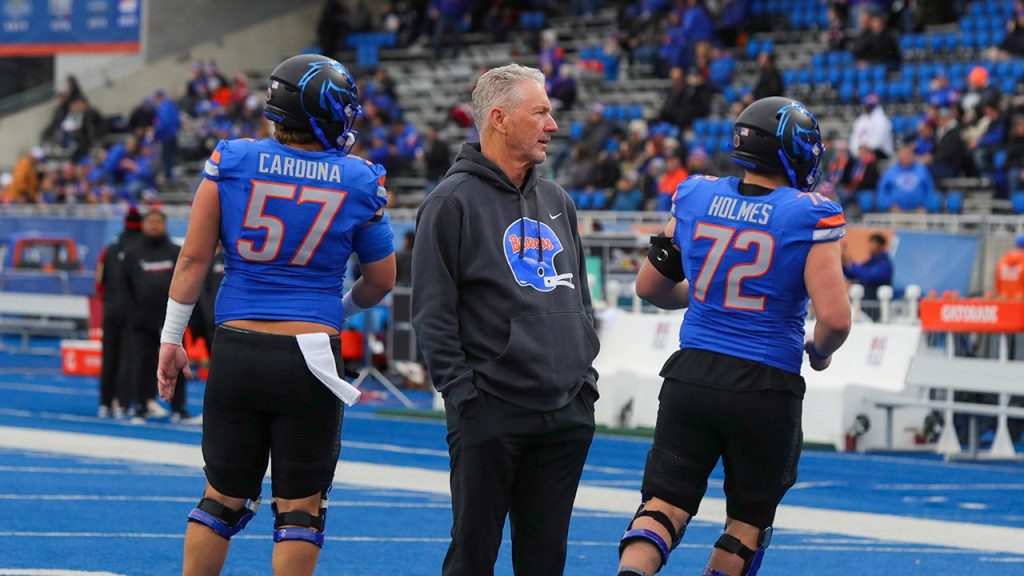Boise State recently made the College Football Playoff, but offensive coordinator Dick Koetter expressed concern about the team’s future success. Despite winning the Mountain West and earning a spot in the CFP, the Broncos lost to Penn State in the Fiesta Bowl. Koetter is worried about the impact of NIL and player transfers on the team, describing them as victims of the system. He highlighted the disparity in offers between what the Broncos can provide and what players are being offered elsewhere, leading to difficulties in recruiting and retaining players.
In response to the financial challenges faced by the team, Koetter reached out to fans, asking for their help in contributing to the school’s NIL fund. He emphasized the importance of keeping the team’s best players in Boise and expressed gratitude for any support received. Head coach Spencer Danielson acknowledged Koetter’s appeal and emphasized the significance of every donation in maintaining the team’s competitiveness. Koetter also stated that the upcoming 2024 season would be his last as a coach, adding a sense of urgency to the team’s current situation.
As the Broncos reflect on their season and the challenges ahead, standout player Ashton Jeanty emerged as a key figure in their success. Falling just short of Barry Sanders’ single-season rushing record, Jeanty finished his college career with an impressive performance in the Fiesta Bowl. Despite coming up 28 yards shy of the record, Jeanty’s consistent performances throughout the season showcased his talent and potential. With the team facing financial constraints and competitive pressures, the contributions of players like Jeanty have been vital to their success.
The impact of NIL opportunities and player transfers on college football programs has been a growing concern for coaches like Koetter. Facing challenges in recruiting and retaining top talent, teams are navigating a landscape where financial incentives can influence player decisions. Koetter’s plea for support from fans and the community underscores the importance of financial stability in maintaining a competitive program. As the team looks towards the future, the need to address these challenges while fostering a positive team culture remains a priority for coaches and players alike.
The discussion around NIL in college sports has raised questions about fairness and equity within the system. With players being offered significant sums of money elsewhere, teams like Boise State are at a disadvantage in the recruiting process. The potential for financial incentives to impact player decisions raises concerns about the integrity of college athletics. As teams navigate these challenges, finding a balance between financial stability and maintaining a competitive program will be crucial in shaping the future of college sports.
As Boise State looks ahead to the 2024 season and adjusts to the evolving landscape of college football, the support of fans and donors will play a crucial role in sustaining the team’s success. With players like Jeanty leading the way on the field, the Broncos are striving to overcome financial challenges and maintain their competitive edge. The commitment of coaches like Koetter and Danielson to finding and developing talent will be instrumental in navigating the complexities of college sports. By addressing the impact of NIL and player transfers, Boise State aims to build a foundation for long-term success while upholding the values of teamwork and sportsmanship.


